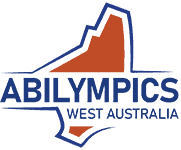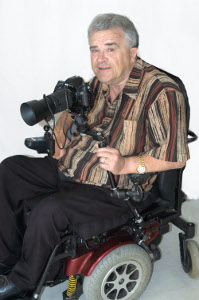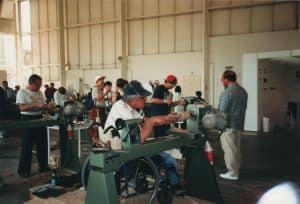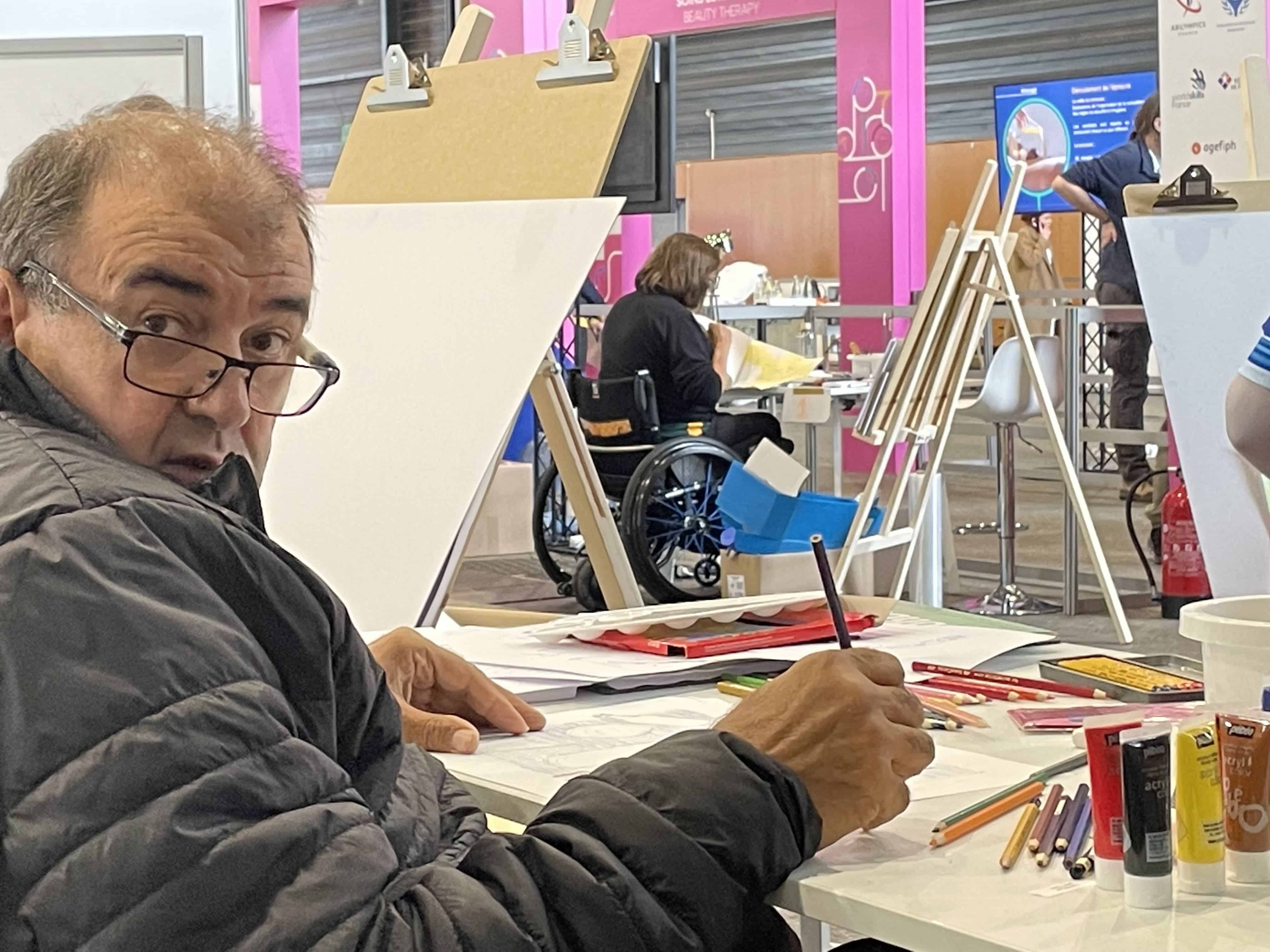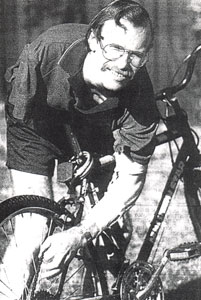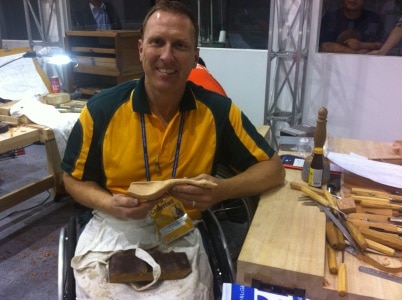Chris McEncroe
Years of steadfast dedication, self belief and hard work has paid off in spades for MSWA Client Chris McEncroe, who over a seven year journey went from lying in a hospital bed on a ventilator to bringing home not one, but two medals for Australia at the 2023 Ambilympics held in Metz, France.
The competition attracted 400 competitors from 24 different countries, with Chris the only Australian representative competing in a skilled trade category: electrical engineering.
Chris, alongside his partner – and recently qualified apprentice – Poss, had two days to complete the wiring for a mock house, complete with an electrical switchboard,
to be judged on the accuracy of delivering a set of plans. While Poss hadn’t initially planned to compete, her help was required to reach some of the work which had been
set out at two metres high.
“I found it quite odd they didn’t expect someone in a wheelchair, and out of the eight competitors, I was the only one,” Chris said. “I asked how I could do the parts that I couldn’t reach, so they let Poss help me, which was pretty cool because we go to do part of it together.”
By the time the last second of the clock ticked down on the competition, Chris had a good feeling his work had earned him a place on the podium.
“I was pretty chuffed, because I felt I was the most disabled out of everyone, and yet it was only me and another guy that actually finished the task,” he said.
“The moment of getting the medal was awesome, getting to go up on stage and first to get the silver medal, I thought alright that’s all done and dusted.”
But little did Chris know, each country is presented an Outstanding Achievement medal to award their strongest competitor.
With Chris the only Australian representative to medal at the Abilympics, he was the natural choice.
“My partner was waving the Australian flag and helped push me up on stage.”
“I would never have thought that I would end up with a silver medal for Australia a couple of years ago, so I think it’s a real ‘feel-good’ kind of thing.”
Chris highly recommended anyone interested to showcase their skills to get in touch with contact@abilympics.org.au. “It’s so positive for everyone, particularly those in the disabled community. It gives everyone that ability to do something they wouldn’t normally have the opportunity to achieve.”
Chris’s Story
As a father of three young girls, Chris had spent the final weeks of December 2016 working long days at his fledgling electrical business before enjoying a well-earned
break with his family.
But what he imagined being a time for spoiling his girls with presents, long lunches and relaxing in the summer sun turned into the unimaginable overnight; a
life-changing diagnosis and a six-month stint in intensive care. “I went to work on December 23, totally normal and healthy,” Chris remembers. “It hit me nearly two hours into that day, I just started getting weakness in my legs.”
“By lunchtime it had spread to my arms, but weirdly I didn’t think much of it. I didn’t expect anything because I was a healthy guy.” Having managed to finish the job
that day, Chris made his way home and went to bed, not raising the alarm with his family. “I went to bed that night and never walked again,” Chris said. “The next morning, I told my ex-wife that I couldn’t get out of bed. I literally could not move. The paramedics had to drag me out of bed and took me to Busselton Hospital.”
Due to the severity of Chris’ condition, he was quickly diagnosed with Guillain-Barré Syndrome.
“I explain it as MS in reverse. It is the same demyelination of the nerve sheath, but in my case, I lost all my nerve sheath overnight,” Chris explains.
Unlike MS, Guillain-Barré affects the peripheral nervous system – the network of nerves located outside of the brain and spinal cord.
“They flew me out to Perth straight away, because when it’s that severe, there is a real risk of going into full cardiac arrest,” he said. “I knew nothing about it at that
stage. I got to ICU, I remember blacking out, and then I was basically in a coma for two weeks.”
What followed was six months in Fiona Stanley’s intensive care unit on a ventilator. “Most ICU patients are totally blacked out the whole time, whereas I was totally responsive – I just couldn’t breathe,” he said. From the start, doctors told Chris he may never fully recover, citing that people living with Guillain-Barré rarely made significant recoveries past the two-year mark. But giving up was never an option for Chris. “At two years, I was still having help with everything. I could hardly feed myself or do anything at that point,” he explained. “If I went off what the textbooks say, life now would be pretty different.” “I have just never given up. I’ve
been lucky that I haven’t had to go straight back to work, I’ve still been able to do my rehab and that I have had MSWA, they have done a lot for me.”
“The physios have been incredible, to be honest – it makes me emotional to think about it.”
Now seven years along his journey with Guillain-Barré, Chris is close to walking and is in the process of applying for semi-robotic knee joints, which he trialled in Perth.
“The end goal is to use them around the house with a walker frame to start with, then crutches, so that’s what we are working on in physio at the moment,” he said.
As well as representing his country on a global scale, the self-proclaimed “rev head” is also in his fourth season of racing go-karts, which Chris modified himself, with some help from his carers, to be hand controlled.
“Funnily enough, I think go-karting is what has done so much for my upper-body strength. It’s as good for rehab, as it is for mental health,” he said.
Reflecting back, Chris said his journey had opened his eyes to a whole new world. But through it all, Chris is an unstoppable force when it comes to achieving his goals.
